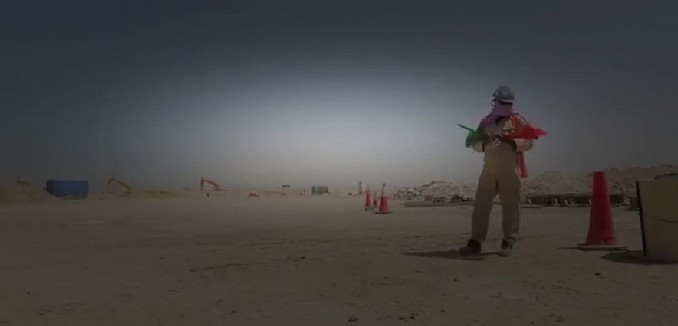Nepalese migrant workers charged with building venues for the 2022 World Cup in Qatar died at a rate of one every two days this year, according to a report in The Guardian:
Human rights organisations have accused Qatar of dragging its feet on the modest [workplace safety] reforms [it has promised], saying not enough is being done to investigate the effect of working long hours in temperatures that regularly top 50C.
The Nepalese foreign employment promotion board said 157 of its workers in Qatar had died between January and mid-November this year – 67 of sudden cardiac arrest and eight of heart attacks. Thirty-four deaths were recorded as workplace accidents.
Figures sourced separately by the Guardian from Nepalese authorities suggest the total during that period could be as high as 188. In 2013, the figure from January to mid-November was 168.
The Guardian‘s report only focused on migrants from Nepal, “raising fears that if fatalities among all migrants were taken into account the toll would almost certainly be more than one a day.”
The plight of the migrants working on Qatar’s World Cup venues has been well documented. The workers are held as virtual slaves working long hours in the blistering heat for little pay, safety protections, or ability to return to their home countries.
The high death toll among migrant workers, projected to reach the thousands, prompted a condemnation last year by British Prime Minister David Cameron.
The scandal of Qatar’s treatment of its workers is compounded by the scandal of how it got the rights to host the event in the first place. In The Fruitful Game: How Qatar Uses Soccer to Polish Its Image, which was published in the October 2014 issue of The Tower Magazine, Ben Cohen writes:
When it comes to Qatar—the wealthiest country in the world, with a $200 billion budget to spend on stadiums and infrastructure for 2022—the corruption charges have been more seriously documented. Of special concern are the allegations that Mohamed bin Hammam, a Qatari member of the FIFA executive, made secret payments totaling $5 million to other committee members in advance of the 2010 FIFA vote in favor of Qatar’s bid. Hence the current pressure on Blatter to release the report, not least from its author, Michael J. Garcia, the former U.S. Attorney for the Southern District of New York, whose career highlights include the investigation of the disgraced governor of New York, Eliot Spitzer. …
With Garcia’s report currently unlikely to surface in the public domain, speculation about how Qatar’s bid was successful will, for soccer wags, provide endless material to support the contention that FIFA is irredeemably corrupt. In the wider domain of Middle Eastern politics, the investigation takes on an additional layer; specifically, why Qatar, a leading sponsor of jihadi terrorist organizations like Hamas, and a serial abuser of human rights inside its own borders, has turned to soccer as the principal means of polishing and promoting its self-image as an enlightened state.
[Photo: Flash News / YouTube ]




